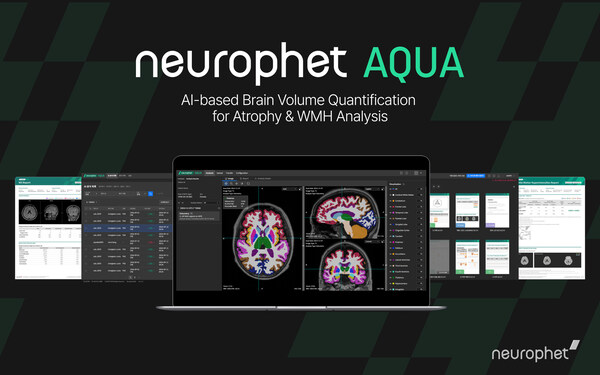Science
Neurophet Validates Brain Imaging Software in Clinical Study

Neurophet, a South Korean company specializing in artificial intelligence solutions for brain disorders, has announced the publication of clinical validation results for its software, Neurophet AQUA. This significant study, which evaluates the efficacy of the software in detecting mild cognitive impairment and dementia, was published in the Annals Academy of Medicine Singapore on September 30, 2025.
The clinical study took place from April 2022 to July 2023 at the Dementia Research Centre of the Lee Kong Chian School of Medicine, Nanyang Technological University, Singapore. It involved a diverse cohort of 90 adults, including 30 healthy individuals, 40 patients with mild cognitive impairment, and 20 patients with dementia. The research aimed to assess the accuracy of Neurophet AQUA in analyzing white matter hyperintensities (WMH) and gray matter volume.
Results from the study demonstrated a strong correlation between the analyses performed by Neurophet AQUA and assessments made by medical experts for WMH, with a correlation coefficient of ρ=0.66 (p<0.0001). Additionally, the software showed an impressive correlation with existing automated tools, such as LST and CAT12, with coefficients ranging from ρ=0.84 to ρ=0.85 (p<0.0001). The team also found significant atrophy in the hippocampus and posterior cingulate cortex of dementia patients, effectively distinguishing the progression from cognitively normal to mild cognitive impairment and further to dementia. Notably, Neurophet AQUA completed gray matter segmentation in less than five minutes, significantly enhancing efficiency over traditional assessment methods, which can take several hours. The combined analysis of gray matter and WMH was finalized in under 20 minutes.
These findings suggest that Neurophet AQUA has the potential to assist clinicians in diagnosing and developing treatment strategies for dementia more quickly and objectively. The software’s ability to provide faster and more accurate MRI analyses positions it as a valuable tool for dementia diagnosis and monitoring in clinical settings.
Donghyeon Kim, Co-CEO of Neurophet, expressed optimism about the study’s results, stating, “This study demonstrated the clinical validity of Neurophet AQUA in a patient cohort from Singapore. It marks an important milestone proving that Neurophet’s technology can be trusted in global clinical practice.”
In addition to this breakthrough, Neurophet signed a supply agreement last month with the National University of Singapore (NUS) and Singapore General Hospital (SGH) for its Positron Emission Tomography (PET) image quantification software, Neurophet SCALE PET.
Founded in 2016, Neurophet focuses on developing innovative solutions for the diagnosis and treatment of brain disorders, utilizing advanced AI technology. The company aims to enhance the understanding of brain health and continue to pioneer solutions for various brain diseases. Its flagship products include Neurophet AQUA, Neurophet SCALE PET, and treatment planning software for brain stimulation therapies, among others.
As Neurophet continues to make strides in the field of neuroimaging, its commitment to improving patient outcomes in dementia care remains unwavering.
-

 Business5 months ago
Business5 months agoKenvue Dismisses CEO Thibaut Mongon as Strategic Review Advances
-

 Lifestyle4 months ago
Lifestyle4 months agoHumanism Camp Engages 250 Youths in Summer Fest 2025
-

 Sports4 months ago
Sports4 months agoDe Minaur Triumphs at Washington Open After Thrilling Comeback
-

 Sports5 months ago
Sports5 months agoTupou and Daugunu Join First Nations Squad for Lions Clash
-

 Top Stories5 months ago
Top Stories5 months agoColombian Senator Miguel Uribe Shows Signs of Recovery After Attack
-

 World5 months ago
World5 months agoASEAN Gears Up for Historic Joint Meeting of Foreign and Economic Ministers
-

 Health4 months ago
Health4 months agoNew Study Challenges Assumptions About Aging and Inflammation
-

 Business5 months ago
Business5 months agoOil Prices Surge Following New EU Sanctions on Russia
-

 Entertainment4 months ago
Entertainment4 months agoDetaşe-Sabah Violin Ensemble Captivates at Gabala Music Festival
-

 Entertainment4 months ago
Entertainment4 months agoBaku Metro Extends Hours for Justin Timberlake Concert
-

 Top Stories5 months ago
Top Stories5 months agoRethinking Singapore’s F&B Regulations Amid Business Closures
-

 Business5 months ago
Business5 months agoU.S. House Approves Stablecoin Bill, Sends to Trump for Signature









